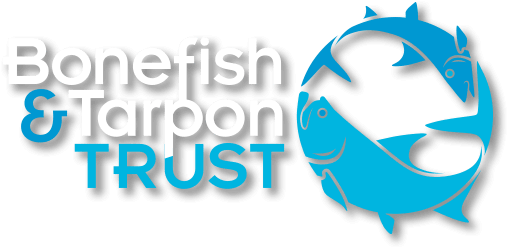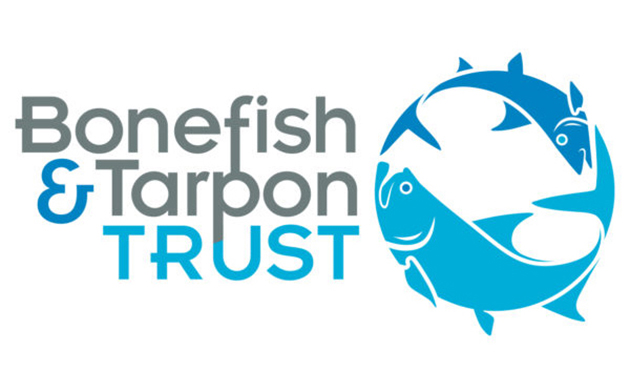SUBJECT: License Renewal Application of Turkey Point Nuclear Plant
DATE: April 28, 2019
Bonefish & Tarpon Trust writes to provide comment on the License Renewal Application of Turkey Point Nuclear Plant by FPL. Due to the ongoing environmental impacts caused by the Cooling Canals System, including the degradation of habitats important to our valuable recreational fishery and the threats to our supply of drinking water, we request that NRC and FDEP require FPL to replace the antiquated system of canals with cooling towers. In the absence of that requirement, Bonefish & Tarpon Trust opposes this license renewal.
The coastal waters surrounding the Turkey Point Nuclear Plant are part of a recreational flats fishery that generates an annual economic impact exceeding $465 million—activity that supports thousands of jobs and benefits both local communities and the state’s robust travel and tourism industry. The degradation and loss of habitats and the subsequent loss of the recreational fisheries they support will impact our state economically and culturally. Additionally, the factors causing such habitat loss, which are outlined below, are likely to have far-reaching impacts to the health and well-being of human communities living and working along the coast and dependent upon the Biscayne Aquifer for their drinking water.
FPL’s application for a 20-year extension to the Turkey Point operating license, covering the period of 2032 to 2052, will make it one of the oldest nuclear power plants in the U.S. and world. The reactors at the site were designed for 40 years of use and the license has already been extended to 60 years. FPL’s application for another 20 years would bring the total period of operations at Turkey Point facility to 80 years.
FPL is also seeking a new revised permit from the Florida Department of Environmental Protection that will allow it to continue discharging polluted hypersaline water from the Cooling Canal System into the Biscayne Aquifer, our primary source of drinking water. This plume of water, which is three times saltier than seawater, is traveling west through the Biscayne Aquifer toward our water well fields and east through the porous limestone under the aquifer, which is a conduit for it to reach the bay. FPL is not allowed to discharge into the navigable waters of the United States under its current FDEP permit, yet it has been in violation for decades.
The Turkey Point plant was designed in the 1960s with a system of unlined cooling canals stretching for miles. Water from these canals is used to cool the reactors. The site is adjacent to the surficial Biscayne Aquifer, our drinking water aquifer, and situated between the Everglades National Park, Biscayne National Park and Card Sound. The cooling canal system was an experiment at its inception and has not worked as designed for the past 30 years, leaking pollutants into the bay and creating a plume of polluted, hypersaline water that is moving in all directions through the Biscayne aquifer. This hypersaline plume was created by the evaporation of water from the canals, which left behind millions of gallons of heavier saltwater. In turn, this has killed seagrass and generated a polluted mix of nutrients and decaying organic matter that has interfered with the ability of the water to cool the reactors during periods of intense heat. The system, which is licensed by the State of Florida as an industrial wastewater site, cannot be operated safely today without the daily infusion of 20-30 million gallons of brackish water from our secondary aquifer, the Floridan, to dilute the salt concentration.
Over the years, FPL has tried many fixes but none of them has worked. At present, FPL is using a line of 10 extraction wells along the western side of the five-mile length of the canal system in an attempt to pull back the polluted hypersaline water after it leaks away and also to stop the hypersaline plume. After more than two years, there is no evidence that the hypersaline plume is being retracted, but Miami Dade DERM and the FDEP have given FPL five years to make this system work. The renewal of the NRC license for reactors 3 and 4 is premised on reasonable assurances by FPL to the NRC that this new method will work.
The Cooling Canal System at Turkey Point, which lies almost at sea level along the bay, is also at risk of being over-topped during storm surges and hurricanes. Rising seas due to changing climate conditions also threaten the system going forward.
In addition to these concerns, the coastal waters surrounding the plant are part of a recreational flats fishery that has an annual economic impact exceeding $465 million, which supports thousands of jobs and benefits both local communities and the state’s robust travel and tourism industry. This economic value is in perpetuity as long as the habitats are healthy.
For these reasons, we are asking that FPL upgrade the Turkey Point Nuclear Plant by replacing the failed systems of cooling canals with mechanical draft cooling towers, which have been recognized for many years as the industry standard and best available cooling technology for nuclear reactors. Given the threats to our environment, this is not an unreasonable request. We oppose the license renewal from 2032 to 2052 and the proposed FDEP revised permit unless the NRC and FDEP require FPL to build the cooling towers and cease using the canals.
Sincerely,
Jim McDuffie, President and CEO
Bonefish & Tarpon Trust




